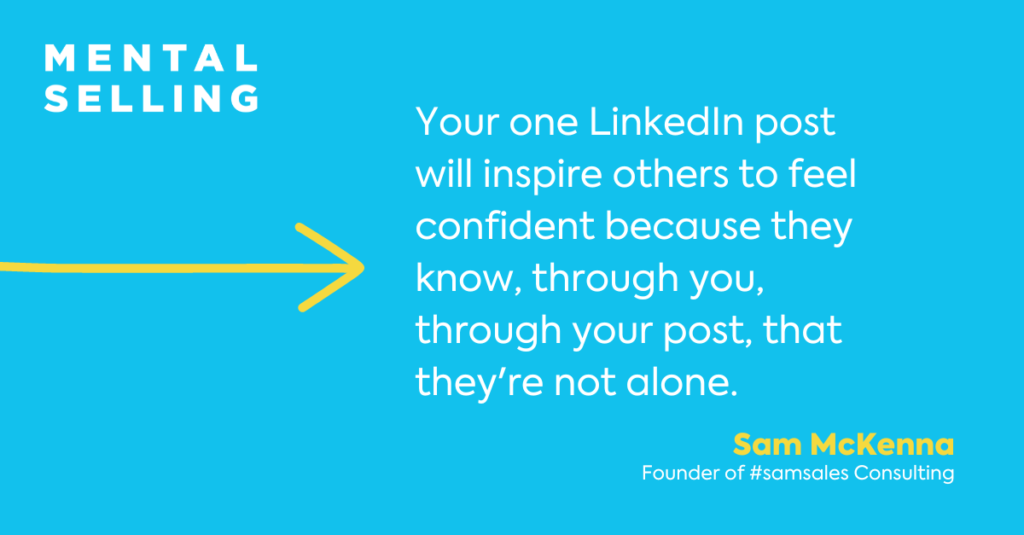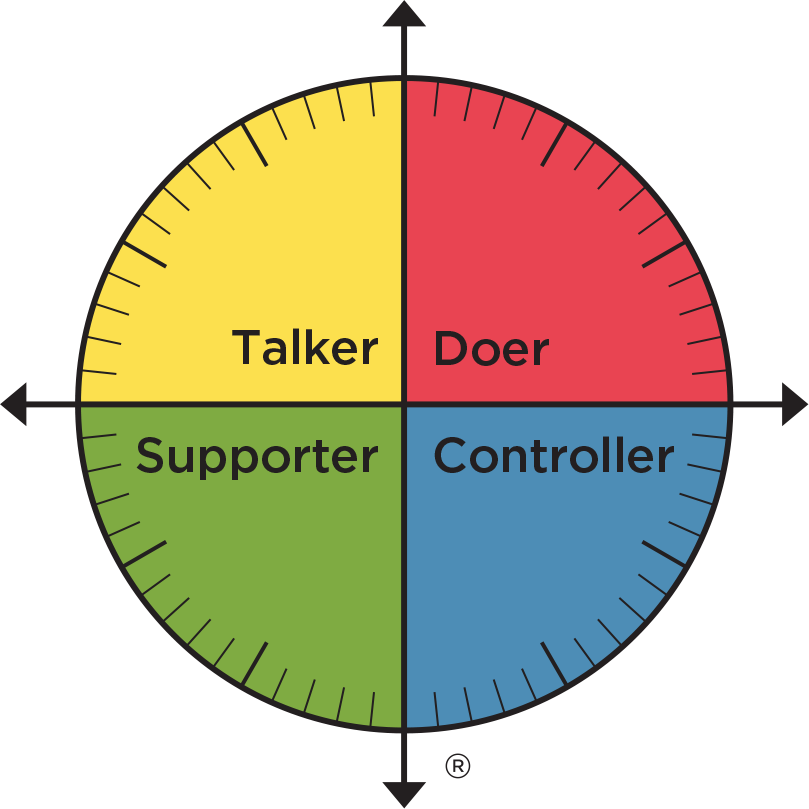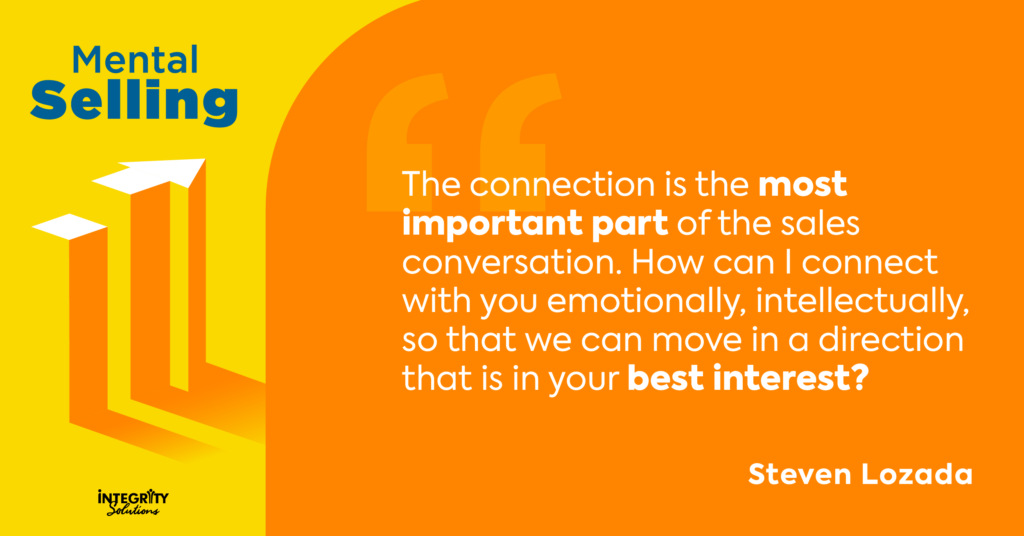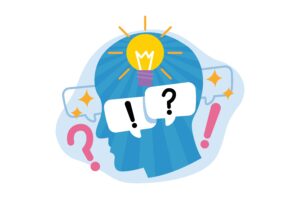15 Essential Sales Skills High Performing Salespeople Live and Breathe

Since our work focuses on both skill and will — the skillset as well as the mindset necessary for sales success — we often get asked what the specific, core sales skills are that every salesperson today needs to have. Amid new technological advancements and emphasis on sales enablement tech and AI, shifting buyer preferences, an increasingly competitive market and general economic uncertainty, adaptability will always be one of the keys to staying ahead in the dynamic world of sales. But there are also some fundamental skills that high performers consistently emphasize to remain successful in this evolving environment.
We asked our team members to weigh in on the core sales skills of world class salespeople based on what they’ve observed in the field, working with clients and in sales training sessions. Here’s what they told us are the sales skills that enable these top performers to navigate uncertainty and volatility, build meaningful relationships and deliver value to their customers, day in and day out.
Prospecting Skills
Salespeople who are skilled at prospecting are better able to connect with target buyers and build their pipelines. By understanding needs and engaging in value-focused conversations through a variety of mediums, they’re continually generating new opportunities that tend to result in better win rates.
We know that sales prospecting is a vital part of sales success. We also know that most salespeople aren’t doing it enough and aren’t doing it effectively. This is certainly one of those areas where skill and will overlap. Many salespeople have misconceptions about what prospecting requires of them; others lack confidence in their abilities to do it well. As a result, they may know that prospecting is important, but these and other self-limiting behaviors become barriers to actually doing it. Defining what prospecting is and developing effective skills and behaviors will build their confidence and motivation to follow through and start seeing the impact.
Networking Skills
Like prospecting, networking is one of the cornerstones of effective selling, but not all salespeople understand how to do it well. For many, their overall level of skill and confidence has been shaken in recent years as so much of networking has migrated to the online world.

LinkedIn has become an essential platform for both sales prospecting and networking, but it matters how you use it. Skilled networkers know that you can’t just log on and start spamming people with your content and expect to reel in a new client as a result. As Sam McKenna, CEO of #SamSales, reminded us, LinkedIn audiences are no different than most others today: “They don’t want to be told, and they don’t want to be sold.”
Sales Planning and Preparation Skills
Successful salespeople don’t just wing it and expect greatness. They prepare and plan and do the work to make sure their sales calls accomplish what they set out to do. Joyce Hames calls it “the opposite of ‘shooting from the hip.’”
That planning includes everything from thorough researching the company as well as the stakeholders’ needs to gathering appropriate materials to making sure technology and systems are set up to deliver a seamless presentation. It also includes mental preparation that allows them to anticipate potential questions or challenges and stay poised and energized throughout.
Pre-call planning and preparation requires skill as well as the discipline to do it consistently, even with existing clients. It provides clarity and a roadmap for a successful call.
Dave Larter observes, “Especially with some salespeople who have a long-time relationship with a client, the tendency is to skip over gaining rapport every time an interaction occurs. They want to ‘get down to business.’ Instead, you always need to take a moment to focus on the other person or people and get centered and tune the world out and them in.” Pre-call planning makes that possible.
Communication Skills
Communicating is at the core of sales. Top performers make a point to keep those skills sharp and up to date, especially considering all the ways we now have to connect with others — and the different preferences different people might have for communicating with us.
In other words, you can no longer just be effective face to face, Hames points out. “The best salespeople understand the nuances of creating connection during all forms of communication, whether it’s face to face, video conference, phone, email or any other method.”
Part of a salesperson’s role is the facilitate agreement, prioritization and urgency among all the key stakeholders within a client. And so, when it comes to communication, the ability to take complex problems and simplify them for all audiences is essential.
Steve Schmidt adds that successful salespeople rely on proven frameworks to support and enhance their communication skills. One example is the Behavior Styles model, which builds awareness of your own communication preferences and how others may perceive you. “More importantly, it gives you the ability to identify and adapt to other people,” he says. “The objective is to maximize every interaction.”

Similarly, a sales communication framework ensures there’s a process and a roadmap — “a trail to the sale,” as Schmidt puts it — which helps guide communications in a logical, productive way and embeds a common sales language across the organization.
“A logical, easy to apply model ensures a consultative selling process, provides continuity for a sales team, and creates that common language, which also makes coaching easier,” he says.
Trust Building Skills
Developing trust and rapport must precede any selling activity. That potential customer must perceive that you have their best interests in mind before they will buy from you. Even (and especially) when you’re selling virtually, you must build rapport by adapting your communication style to your potential customer’s style. When you focus on understanding their wants and needs, you break through their natural psychological barriers. At that point you will begin to establish trust in the relationship.
To achieve coveted “trusted advisor” status, salespeople must become viewed as a source of valuable advice. Customers must believe that they are truly heard and understood, they have their best interests at heart, and that the salesperson will always treat them honestly.
This comes from taking a long-term perspective rather than seeing customers short-term sales prospects. It requires being genuinely inquisitive and seeking to understand their realities. The power of the simple phrase like, “so what I believe I hear you saying is…” can go a long, long way.
Listening Skills
Customers want to do business with someone who understands them. And understanding requires active listening. Listening is a necessary part of communicating, but in their eagerness and excitement to talk about their offerings and how they can benefit the customer, many salespeople forget just how important listening really is among sales skills.
Elisa Matthews says what stands out among the most successful salespeople is their ability to “Listen, really listen. And it’s listening to hear, not listening just to jump in and respond. There’s a difference, and it matters to the consumer who wants to be heard and understood.”
As Schmidt says, “We are given two ears and one mouth for a reason. It’s easier to listen someone into buying than to talk someone into buying. This skill reduces the tendency to product dump and engages the prospect/customer in a more transparent and two-way discovery.”
One of the secrets of effective listening is being comfortable with moments of silence. “Often times, people will share more information when given space to process and reflect on what they’ve just said. The words ‘silent’ and ‘listen’ have the same letters — to be a good listener, we need to first learn how to be silent.”
Questioning Skills
Delve further into the communication toolkit of the top salespeople and you’ll find an inherent curiosity that drives their ability to ask great questions. And these aren’t standard “sales” questions, memorized out of the textbook.
“It’s about asking open-ended questions and well-timed ‘digging deeper’ questions to be thought provoking,” says Hames. Being able to do it well is rooted in that all-important skill of pausing and listening.
“Remember it is not the quantity of questions that are asked, but the quality of questions that engage the customer at a deeper level than the competition,” Larter says.
In fact, mastering the skill of asking great questions will provide you with a distinct competitive advantage. As Schmidt notes, “Going beyond the basics to elevate your question not only shows your expertise and understanding of particular company or industry, it also builds trust, as you expand and deepen the quality of the ‘interview.’”
Storytelling Skills
We’re 22 times more likely to remember and internalize a story than a series of facts or bullet points. That’s because stories get your whole brain working, not just the language processing parts. Storytelling is among the sales skills that bring an emotional element, pulling your buyers in closer. They relate better to you and what you’re talking about, and that begins to build trust.
Stories also help draw out a customer’s pain points in ways that simple close-ended questions can’t. You’re making it safe for them to admit the problem because now they know someone else had the same challenge. That in turn opens the door for you to discuss solutions to those challenges.
Problem-Solving Skills
At its essence, selling is about the process of identifying someone’s wants or needs and then creating value for them. When you reposition it as a mutual win-win activity, both sides benefit. You are not persuading, you’re focused on ensuring your solutions are a fit. You’re working through problems and helping people reach their individual goals- including identifying when a customer has problems you can’t solve for them.
That’s quite different from the typical definition that sales is about talking people into buying what we’re selling.
Sales Demonstration Skills
When it comes to their sales demonstration skills, top salespeople distinguish themselves in several ways, first and foremost, in their ability to be patient and not skip ahead to this step in the sales process until they’ve sufficiently built rapport and identified needs.
The demonstrating phase is for explaining benefits and features in the context of how they satisfy the needs the customer has articulated. It’s not a non-stop feature dump. Great salespeople will first repeat the most important needs the customer shared and then explore how their product, service, process or other offering can directly meet those needs. After that, they’ll share additional features and benefits that are also included with the solution.
Just as important, if their offering isn’t the best solution for the customer’s wants and needs, they’re upfront and transparent about it. That’s what integrity in selling is all about.
Product Knowledge
We talk all the time about being able to memorize and repeat product features & benefits is not selling. In fact, it’s not what buyers want to hear about up front at all. But of course, at some point you can’t sufficiently demonstrate if you don’t know the ins and outs of what you’re presenting. Potential customers have access to a wealth of information online today about what you’re selling. If you don’t have as much and more knowledge about your products, you’ll instantly lose credibility.
High-performing salespeople are passionate about learning as much as they can, not just about the solutions but also about their impact — the stories of how they’re making a difference for customers and their businesses. This builds confidence and strengthens their ability to demonstrate benefits, and it also reinforces their belief in the value of what they’re selling. That’s a powerful component of the achievement drive that fuels their energy and, ultimately, helps them win more clients.
Deal Closing Skills
Many salespeople think about deal closing in terms of a strategy designed to get people to say “yes.” On the opposite end, some salespeople can be reluctant to ever ask for a commitment to move forward. But top salespeople view closing as an attitude and another step in collaboration and problem-solving with a buyer rather than a strategy to ‘win’. They simply ask for a decision once the person is clearly ready to say “yes.” The selling has already been done at that point.
If they do get a negative response, then they know they still have some work to do to clarify needs, feelings or concerns; listen to understand and help lower the natural resistance to make a decision; or pick up any new revealing insights. Mike Fisher says this often comes back to the “interview” step in the sales process. The salesperson may not have understood the customer’s needs completely or didn’t find out who the decision-makers were, for example.
Rather than trying to change someone’s mind at that point, savvy salespeople will pinpoint what step they missed and attempt to complete it. They view objections as a gift- a clear sign that the buyer requires more information of clarity in order to confidently move ahead. They’re also well aware that sometimes you can, and sometimes you can’t.
Emotional Intelligence
In a high-stress job like sales, where rejection is around every corner, emotional intelligence or EQ — that ability to understand the emotions you’re feeling (and those of others) and their impact on your behaviors — is a must-have. People with high emotional intelligence are better prepared to deal with negative emotions, resistance to change and other success killers.
“High levels of emotional intelligence allow you to accept rejections on a professional level, not a personal one,” says Matthews. “Salespeople with high EQ recognize that when a customer brings up a concern or objection, they are not saying no to you, they are expressing something they may not fully understand. So instead of being quick to respond with more information, they’ll ask a question to understand their why.”

It’s also about, as Fisher says, “being able to read a room.” Successful salespeople are acute observers. They notice facial expressions, gestures, tone and body language. Even when they can’t see the person face-to-face, they’re constantly paying attention and picking up cues that help them understand where they might need to change course or further validate.
Relationship-Building Skills
Consultative selling is rooted in relationships, and increasingly, that web of relationships is growing larger and more diverse as sales become more complex and involve a broad array of stakeholders. Winning salespeople understand that, especially with larger deals, they can’t just rely on their single point of contact; they have to build trust and forge relationships with people across the customer organization, including multiple decision-makers and influencers. This is also how they’re able to sell deeper and wider into existing accounts.

Time Management Skills
Let’s face it — all of this is a lot! And that’s why time management is potentially one of the most underrated but certainly one of the most valuable sales skills, says Fisher, who adds, “many salespeople simply aren’t good at it.”
Matthew Dicks, author of the book Someday is Today, and podcast guest notes that “A big part of time management is soul management — taking care of yourself, your mindset, how you’re feeling about things. The pursuit of perfection is a fool’s errand, and yet people do it all the time.” This focus on the outcome versus the process can become paralyzing and demoralizing.
Instead, successful salespeople focus on establishing productive habits and making each step along the way the best possible step it can be. By breaking the process down into smaller chunks, it becomes more manageable and less overwhelming. As a result, they’re able overcome the pull of procrastination and take advantage of time others might be wasting.
“We don’t get to choose the outcomes,” Dicks reminds us, “but we have an enormous amount to say about how we’re getting there, and that’s what we have to focus on.”
Time management skills also include responsiveness and reliability. Customers expect to hear back from salespeople in a timely manner, when they committed to get back to them and with what was agreed upon.
The key is not to prioritize what’s on your schedule, but to schedule your priorities.
Mastering the Sales Skills That Will Help You Succeed Now and Tomorrow
Sales has undergone some radical changes in the past several years. The world’s best and most consistent salespeople succeed with a combination of great skill set, mindset and process. The relationship between and focus on all three must always be in focus. By continuing to review, emphasis and hone these 15 sales skills you’ll be able to meet the increased expectations of today’s buyers and be prepared for whatever is to come. Your customers will thank you for all you have brought to the table to help them achieve their goals.

Chief Marketing Officer
Related Blog Posts



